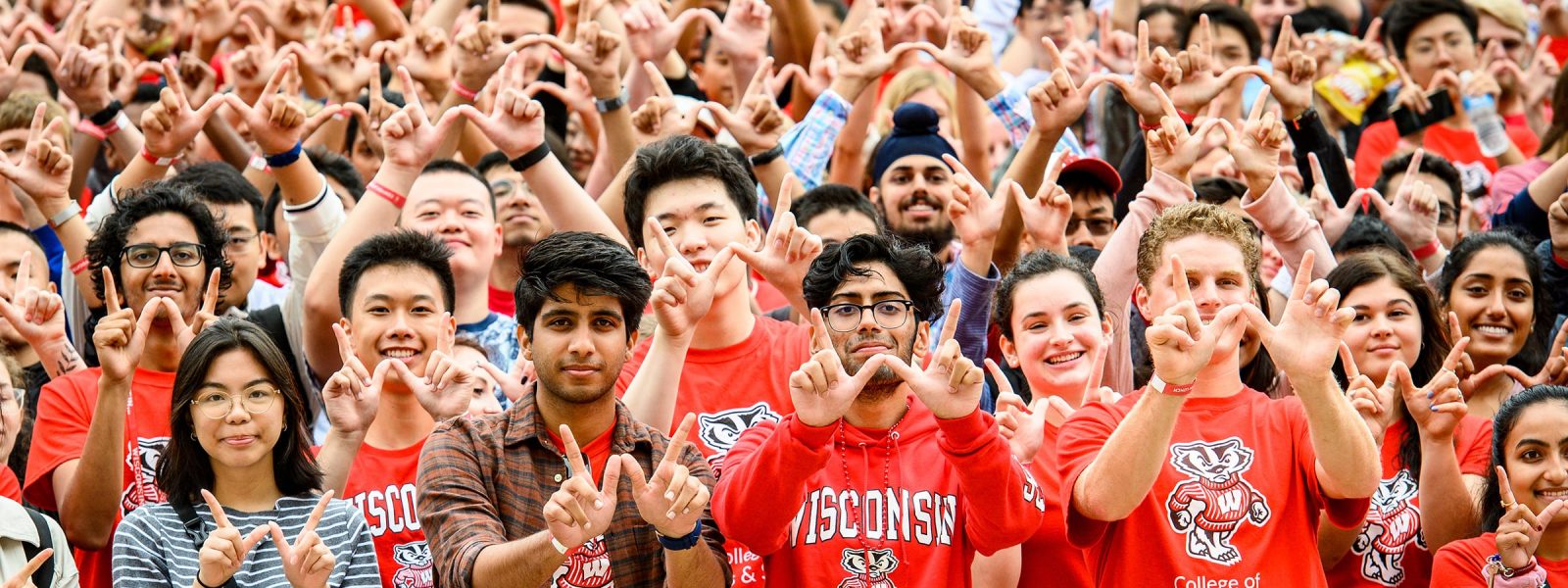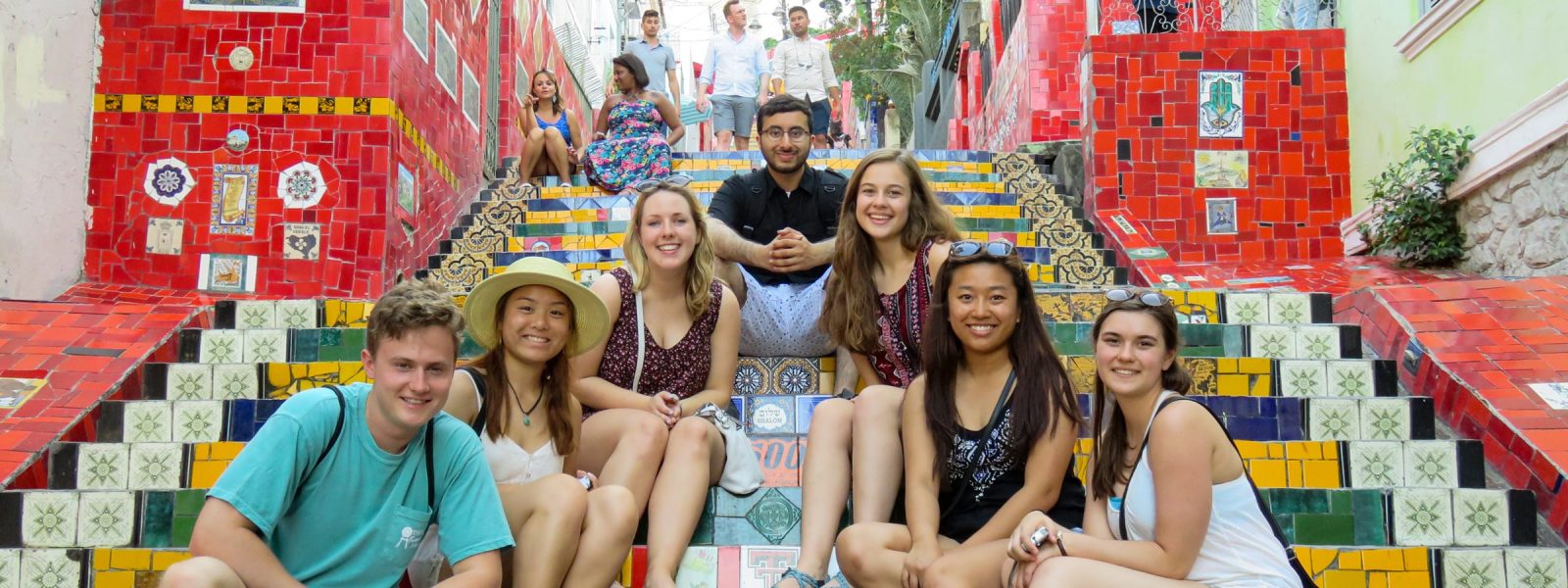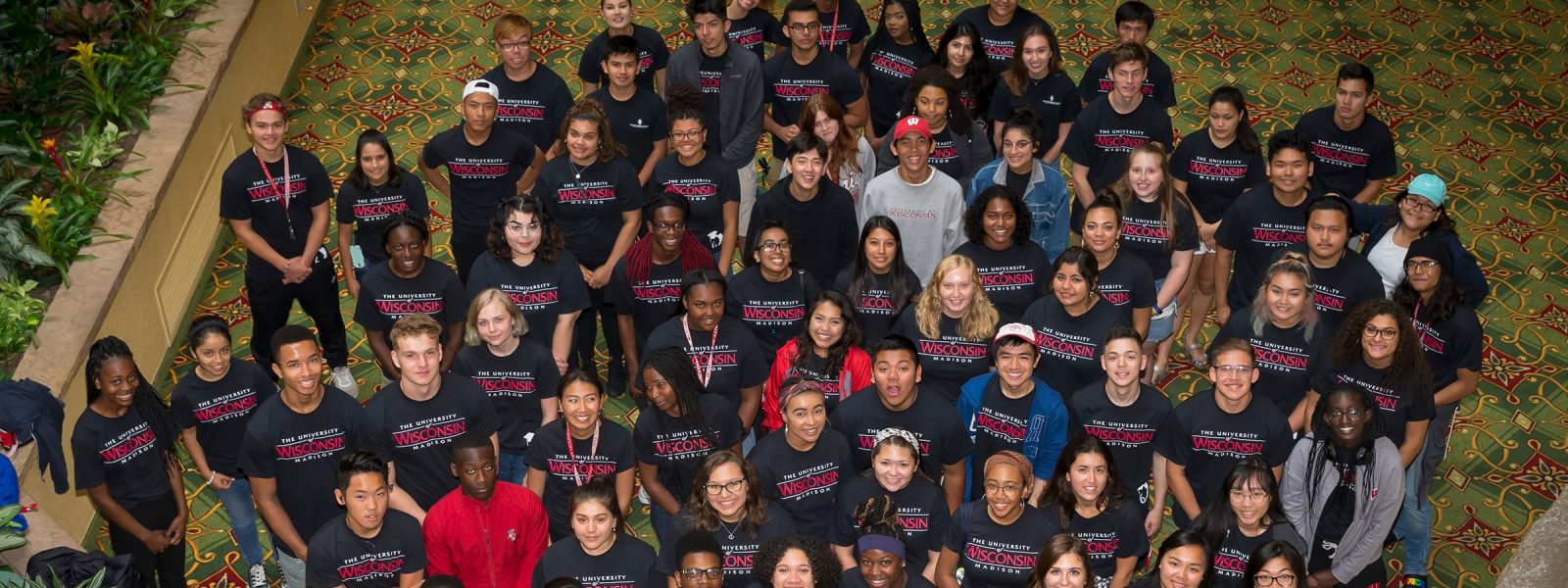A Vibrant Campus Community
Build an organizational culture and climate that fosters engagement, inclusion, diversity, and equity.

1. Provide an inclusive, safe, healthy, and enriching environment for learning and working that promotes wellness among students and employees.
Example initiatives:
UHS Mental Health Expansion
University Health Services (UHS) has added more than a dozen mental-health providers to its staff, including those with a focus on students of color and LGBTQ+ students. UHS has also expanded its hours of operation to increase access to its services, which include individual and group counseling and a 24-hour crisis line.
Diversity Framework & REEL Change Model
UW–Madison is committed to creating an environment where all students, faculty, and staff feel a sense of belonging and can thrive. The university launched a new Diversity Framework in 2015 and continues to track progress through a 10-year implementation plan called Affecting R.E.E.L. (Retain, Equip, Engage, Lead) Change for Diversity and Inclusion.
Campus Cultural Centers
The UW is dedicated to creating spaces where everyone can find community and feel welcome. The Multicultural Student Center manages cultural centers that offer community programming and supportive spaces, including the Black Cultural Center, Latinx Cultural Center, Asian-Pacific Islander Desi American Student Center, and American Indian Student and Cultural Center.
UWell Initiative
UWell is the UW’s collaborative effort to advance the well-being of the entire campus community. The initiative focuses on policy, system, and environmental strategies that influence health and well-being outcomes. UWell connects students and employees to campus and community resources and wellness events.

2. Enhance the holistic development of students by combining learning in and out of the classroom that is steeped in the values of the university.
Example initiatives:
The Wisconsin Experience
The UW’s vision for the total student experience combines learning in and out of the classroom. The Wisconsin Experience is a measure of how students develop as scholars and citizens during their time on campus, with four areas of focus: empathy and humility, relentless curiosity, intellectual confidence, and purposeful action.
Leadership Programs & Resources
The UW’s Center for Leadership & Involvement supports students as they develop leadership capacity. The UW Leadership Certificate is conferred to students who document at least 100 hours of experience focused on leadership development. The Leadership @ UW program is the university’s hub for leadership activities. The program organizes academic courses, trainings, and workshops related to leadership using the validated and culturally responsive UW–Madison Leadership Framework.
Wisconsin Union
As the front door of the University, the Wisconsin Union provides the entry point for over 5 million visitors annually — as well as serving as the signature campus home for both student leadership and community engagement. Whether it’s the programs of WUD/Hoofers, the Union Theater, ALPs, Fraternity and Sorority Life, Wisconsin Singers, and Homecoming or the hospitality, lifelong learning and meeting/event support of the Union, Pyle Center and Fluno Center, the Division of Social Education extends the values, connections, and benefits of UW–Madison to millions of people every year.
Global Engagement
UW–Madison is a top choice for international students, a leader in study abroad, and globally respected for research and collaborations. Recently, the university was listed #4 among U.S. public universities for study abroad participation. UW was also listed as #19 for international students — a diverse group that adds new ideas and perspectives to classrooms and research, while providing opportunity for cultural exchange with domestic students. Students, faculty, staff, and alumni further distinguish the university through receiving FLAS, Fulbright, and Boren Awards; record participation in Peace Corps; and multiple Title VI National Resource Centers.
Public History Project
A multi-year effort to uncover traditionally underrepresented voices throughout the history of the University to enable greater understanding of the full history of the University, including the accomplishments of campus community members whose stories previously may have been hidden or not widely known. Programs and an exhibit will engage students, faculty, staff and community members in understanding the rich, multifacteed history of this University to inform our future.
Chazen Museum of Art
The UW’s Chazen Museum of Art is home to the second-largest collection of art in Wisconsin—more than 22,000 works in permanent and temporary exhibitions. The museum also serves as an educational resource, offering course-related exhibitions, gallery tours, talks by artists and scholars, and other learning events.

3. Enhance diversity among our students, faculty, and staff and build upon our strong commitment to diversity to create a welcoming, empowered, and inclusive community.
Example initiatives:
DDEEA Programs
The Division of Diversity, Equity & Educational Achievement (DDEEA) is a central resource to UW–Madison that houses and provides services related to equity, diversity, inclusion and belonging. DDEEA administers many of the institution’s scholarship and service programs designed to increase diversity and foster equity, inclusion and belonging for students. UW’s Posse Program, the largest Posse Foundation affiliate in the nation, enrolls a cohort of scholars who demonstrate strong potential for leadership and academic success. The Center for Educational Opportunity (CeO) provides services for first-generation and lower income students, as well as those with documented disabilities. First Wave provides a four-year scholarship and holistic support for a cohort of students with exceptional talent in hip-hop and urban arts. Other programs include the PEOPLE Program, the Mercile J. Lee Scholars Program, and the Ronald E. McNair Post-baccalaureate Achievement Program (McNair Scholars Program), which helps eligible undergraduates acquire the knowledge, skills, and capacities necessary to successfully navigate the rigors of Ph.D. studies.
Mercile J. Lee Scholars Program (Formerly Chancellor’s and Powers Knapp Scholarship Programs)
The Mercile J. Lee Scholars Program (MJLSP) attracts, supports and develops the abilities and potential of academically talented and outstanding individuals from underrepresented groups. The scholars benefit from individualized advising, a supportive peer network, leadership development, mentorship opportunities, and a competitive financial award.
VCFA EID Initiative
The Engagement, Inclusion and Diversity (EID) initiative by the Vice Chancellor for Finance and Administration (VCFA) is dedicated to recruiting and retaining high-quality staff and enhancing diversity on campus. VCFA’s efforts are supported by the EID Council, which provides advice and assistance on launching and sustaining wide organizational change.
Student Organization Cultural Competency Training
The Center for Leadership & Involvement in Student Affairs is piloting an online cultural competency training with leaders from more than 100 registered student organizations (RSO) in spring 2022. The training is based on the required Our Wisconsin training for new undergraduates. RSO leaders are provided with educational content, given scenarios and then time to reflect on how to best support their peers in similar situations. The program is expected to be available for all RSO student leaders in fall 2022.
TOP Faculty Diversity Initiative
The UW’s TOP Faculty Diversity Initiative is providing departments new tools and financial support to recruit faculty members who will greatly enhance the quality and diversity of an academic department.